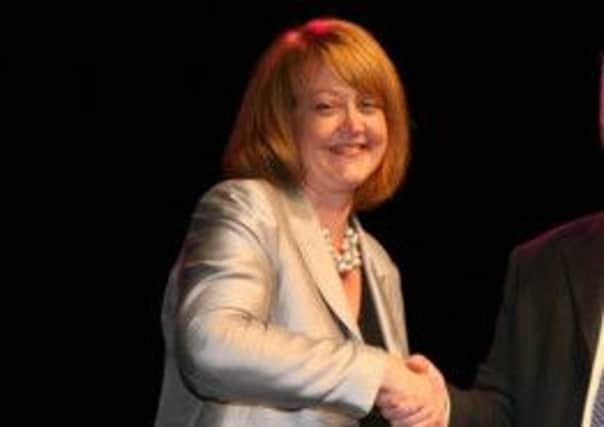‘Three-parent’ babies hope in disease fight


The panel appointed by regulator the Human Fertilisation and Embryology Authority (HFEA) concluded the controversial IVF technique was “potentially useful” and did not appear to be unsafe. But it added there was more research required before such treatment should be offered.
Fertility rules were changed in February, paving the way for Britain becoming the first country in the world to allow mitochondrial replacement (MR) therapy.
Advertisement
Hide AdAdvertisement
Hide AdA final decision to allow the treatments will need the approval of both Houses of Parliament but could come as early as next year.
Mitochondria are tiny powerhouses in cells that generate energy and have a small amount of their own DNA, separate from the bulk of the human genetic code.
Defects in mitochondrial DNA are responsible for a host of inherited diseases, including conditions leading to muscle wasting, heart problems, loss of vision, organ failure and epilepsy.
MR treatment, which employs two different IVF techniques, aims to prevent these diseases by giving babies healthy DNA from donor eggs.
Advertisement
Hide AdAdvertisement
Hide AdThe baby is born with normal DNA passed down by its parents – containing most inherited traits such as eye and hair colour and height – plus a tiny amount donated by a second donor “mother”.
In effect, the baby has three genetic parents, though the donated DNA contains less than one per cent of its genes.
Since the healthy DNA would be inherited by future generations, the treatment has the potential to eradicate mitochondrial diseases from affected families.
Critics argue that allowing the treatments could be the first step down a slippery slope towards “designer babies”. If mitochondrial replacement is permitted, more than 100 “three-parent” babies could be born in the UK each year.
Advertisement
Hide AdAdvertisement
Hide AdHFEA chairwoman Sally Cheshire said: “The review process has assembled an evidence base on the safety and efficacy of these two mitochondrial replacement techniques which stands comparison with anything published in the UK or abroad. The science is complex, but the aim is simple: to enable mothers to not pass on to their children a range of serious, and sometimes fatal, inherited conditions. In all of our discussions we should not lose sight of this.
“If the Government decides to seek to change the law they will need the approval of both Houses of Parliament, and it is only right that they consider all the ramifications, social as well as medical, before they make up their minds. There is a long way to go yet.”
Panel member and stem cell scientist Prof Peter Braude, from King’s College London, said: “As a clinician I am aware that inherited mitochondrial disorders are horrible diseases that can devastate families. In the absence of any effective treatment, mitochondrial replacement therapies offer great hope to families afflicted by mitochondrial disorders.”
David King, director of Human Genetics Alert, which opposes genetic engineering, branded the regulator’s science “unsound”.
Advertisement
Hide AdAdvertisement
Hide Ad“Since there is already a safe way to avoid these conditions – conventional egg donation – the use of these techniques would be quite unethical,” he said.
“The health risks to the child are taken purely for the non-medical benefit of the mother being genetically related to the child.”
The Department of Health will consider the report. A spokesman said: “Mitochondrial donation will give women who carry severe mitochondrial disease the opportunity to have children without passing on devastating genetic disorders.
“It will also keep the UK at the forefront of scientific development in this area.”